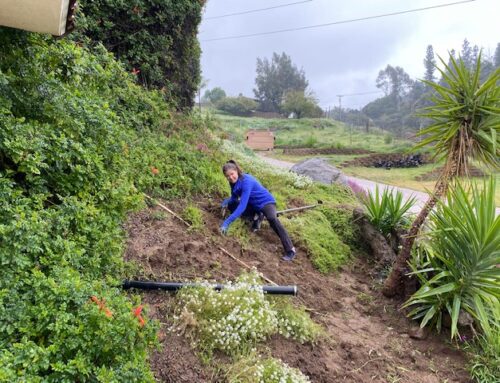I hate to say it, but we live in a culture of bullying and teasing…
I remember when I first arrived in the States twenty years ago and watched shows like Saturday Night Live, and really struggling with the satire. I just couldn’t understand how a group could make fun of others. Having lived in two other countries and traveled to countless places, I can’t say that I’ve experienced this the way that I have here. In America, we seem to take things to an extreme and we seem to make fun of everything. I wonder to myself when all of this came about, when did it become ok to be mean and to rip people off. When did this become the definition of closeness and of friendship. Is this a result of playfulness due to closeness? Or is this an avoidance of intimacy? I suppose it could be both or either, but deciphering that as a child, must be challenging. Teasing and endearment have become entangled and have added to anxiety in school. Isn’t that what we often tell our children, he wouldn’t tease you if he didn’t like you?
When you’ve been raised in a culture that is very different, with messages like “If you can’t say something nice then don’t say anything at all”, and “Be ladylike” and “Sarcasm doesn’t become you”, then you inevitably face a clash when entering this culture. It’s made for an interesting adjustment for me. Now that I’ve adjusted and can enjoy and take part in the teasing, I don’t fit in quite as well when I do travel back to South Africa. There I get flack for being so sarcastic.
We’ve faced so many school shootings, and I work with so many young children who are being bullied in elementary and middle school and who come to my office depressed and often suicidal. This means I’ve given a lot of thought to these problems, and they stand out to me as seemingly particular to this country, even more so than to others I’ve spent time in. And I wonder if these issues are related to the larger culture, and not just to a particular school and problem with bullying alone. Are we contributing to this problem as a larger culture? It’s a hard question to ask, because of course the “buck stops” with the person who actually took the action of committing a crime. But, it’s also important to look at the larger context, and ask what context this child was raised in, including the school climate, their family climate and their larger community and country. School bullying and middle-school nastiness has become a trend, a norm. And for that reason, it’s something that we need to educate our children about, and prepare our children to deal with. It’s certainly on my mind, and my children haven’t even entered middle-school yet. It’s certainly not something that I grew up with, and so knowing how to navigate these challenges, from personal experience, doesn’t come naturally for me.
So what are the ways we can better combat this for ourselves and our families?
Educate Yourself
I recently watched 13 Reasons Why and as horrifying as the series is, I would recommend this show to any parent. My experience growing up and in school was very different to what my children are experiencing today, and I need to know they are facing so that I can be ready to help equip them for the possible challenges in their social environment. Getting a feel for the pressure children feel and a sense of how the peer system is set up has been helpful to me.
Role Play
One of my favorite ways to engage children in learning emotional and social skills within the family context, is using role play. Ask your children what the meanest thing is that they have seen or heard at school, and then act it out. They love it when you switch up roles, and you’re the mean kid first, or the one being picked on. So switch it up and get them engaged. Teach them the difference between a passive response (being the doormat), the aggressive response (punching the other kid) and the assertive response (standing up for yourself, in a firm and clear way). Try each of the responses and ask them to reflect on what it’s like on the other side of these. Have them try the assertive response until it’s believable. Does their voice line up with their eye contact, facial expression and vocal tone. Would you take them seriously?
Utilize Sibling Rivalry
Luckily when you have multiple kids and they are close to each other in age, sibling rivalry is par for the course. And so there is ample opportunity to watch how your children handle their siblings meanness. I love thinking about the primary family as a microcosm of the rest of their lives.
How they learn to handle these relationships at home, will mirror how they handle their friendships, and then their colleagues at work, and ultimately their romantic partners in life.
The opportunity lies in these sibling relationships to teach respect, assertiveness and compromise. I think one of the most used phrases in our household is – ‘Find Agreement’. The three kids are sitting own to watch a show, and if they can’t ‘find agreement’, well
then there’s no show to be watched at all.
The social context our children are growing up in is entirely different, and it can be tough to relate and help. Understanding it ourselves is the first step in helping our children cope with it. Helping them to be resilient, and to be assertive are the most important tools as they face any teasing that they are bound to experience growing up.




